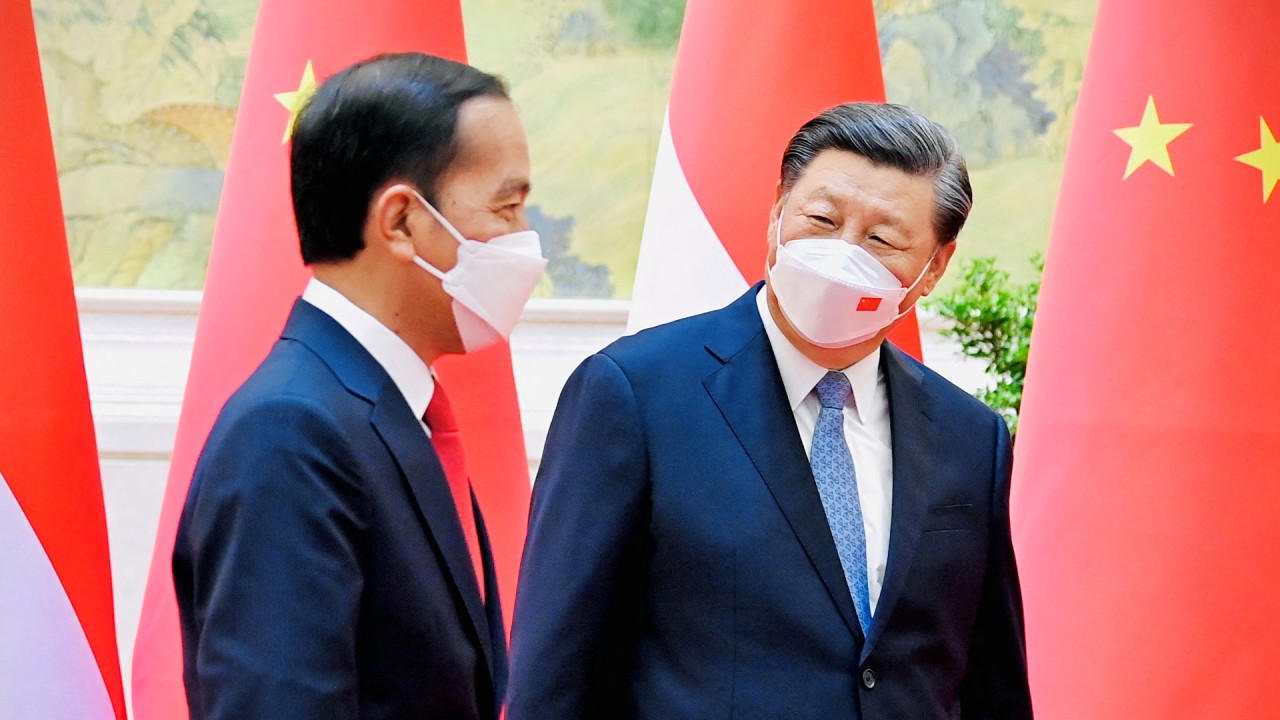Advertisement
What did Indonesia’s Jokowi hope to achieve with his whirlwind China-Japan-South Korea tour?
- Analysts said Joko Widodo’s three-day tour was ‘straight out of the non-aligned leaders’ playbook’, as Jakarta works to balance its US-China ties
- Economics and trade aside, the G20 Bali summit was a major focus – next week’s Super Garuda Shield military drills with the US loomed large as well
Reading Time:4 minutes
Why you can trust SCMP
4

Joko Widodo wrapped up a three-nation tour of Northeast Asia on Thursday, with a focus on shoring up economic cooperation and ensuring attendance at the G20 Bali summit later this year.
His diplomatic charge through top economic partners China, Japan, and South Korea also signalled Indonesia’s desire to stay neutral amid increased great power rivalry, analysts said.
Natalie Sambhi, founder and executive director of Australia-based Verve Research, which focuses on Indo-Pacific civil and military relations, said the tour “was straight out of the nonaligned leaders’ playbook”.
“Visiting Beijing, Seoul and Tokyo not only symbolically demonstrates Indonesia’s desire to remain neutral between major Northeast Asian players, it’s a chance to maximise his time abroad and compare offers for investment and trade cooperation,” she said. “It’s a smart move.”
Widodo started his tour on Tuesday with a visit to China, where he and Chinese President Xi Jinping agreed to strengthen economic ties and continue the synergy between Beijing’s Belt and Road Initiative and Indonesia’s own development vision, the Global Maritime Fulcrum.
The two also affirmed their commitment to completing the Jakarta-Bandung High Speed Railway, a key belt and road project whose development has been marred by a nearly US$2 billion cost overrun, among other issues.
Widodo personally invited Xi to November’s G20 summit in Bali, but China’s foreign ministry only said in a statement that Xi “expressed his thanks and wished the summit a complete success” without confirming if he would attend.
Advertisement
